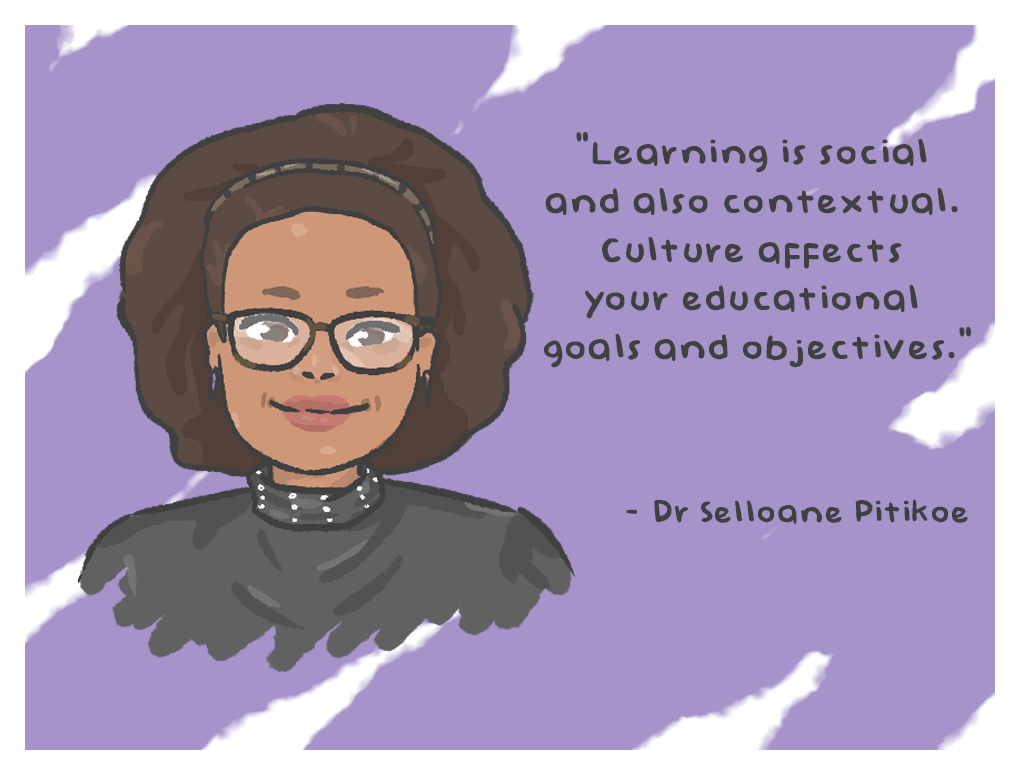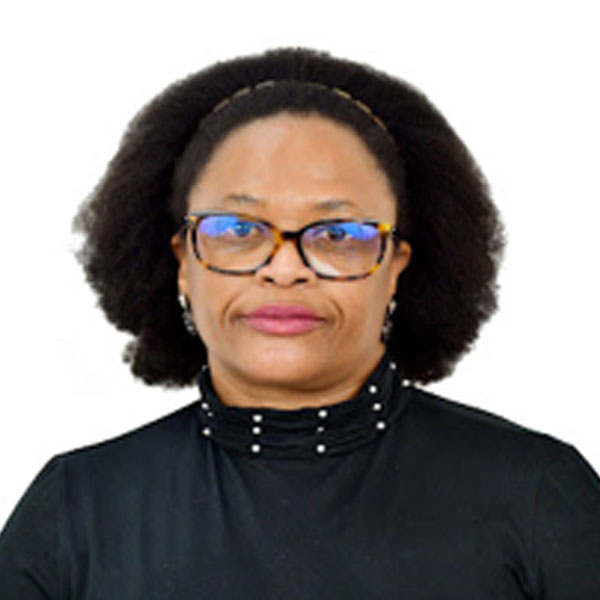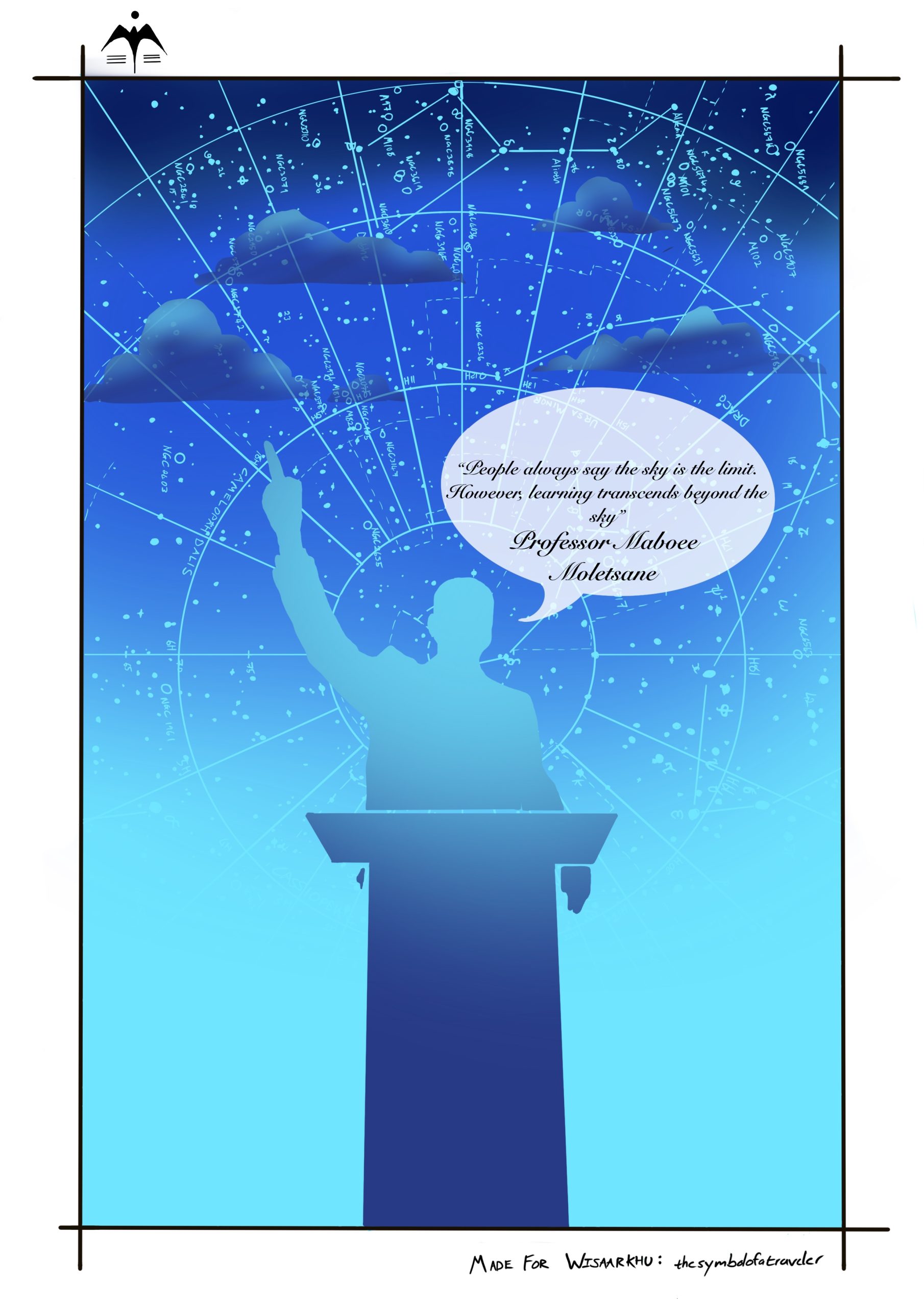Dr Selloane Pitikoe provides a unique insight into a two generation long journey through education, from her parents’ rural upbringing in Lesotho to her achieving a PhD. The story emphasises the principles of letsema and ubuntu and shows how her community supports its students through their education journey.
This paper is grounded in Constructivism Learning Theory focusing on how people learn (Hein, 1991). Hein’s (1991) refers to principles such as: learning as an active process; it involves language; it is a social process; and is contextual, etc. Constructivism holds that knowledge must be “viable [rather than] true” and that cognition is essentially adaptive (Baerveldt, 2013, p. 157). Human interaction is key (Longhofer & Floersch, 2012).
Family background
My humble rural beginnings started in a family of nine; my parents and six siblings in a single matchbox house full of joy and motivation. My journey was role-modelled by my parents in particular Ntate oaka (my father).
Ntate held a Primary School Standard 6 Certificate which qualified him to teach at primary school but he worked in South African mines. Mme oaka (my mother), only passed Standard 4 and was a domestic worker in South Africa before marriage.
He narrated how he attended school through chenchisa:
“My child I attended school through the alternate system, alternating days between school and livestock herding with other boys but my passion never died”.
Lebollo la Sesotho – Traditional initiation school
Lebollo is a rite of passage offered through the traditional initiation school to shape boys and girls into future responsible citizens (ho ōtla). Ntate chose education and was ostracised and ‘othered’ and labelled leqai – an uncircumcised male. Leqai is perceived as a sissy-boy; a weakling that cannot be entrusted with any leadership and decision-making roles in the community.
He used to joke about his leqai status:
(laughing) just look at my age mates! They went through initiation but they cannot even write their names. Lebollo cannot get you a job except that of livestock herding.
I draw on Ntate oaka’s life history, commitment, and perseverance and it continues to drive my educational dreams and goals.

Formal education
I started primary school at the age of five in an Anglican Mission school, where we walked 20 kilometres daily. Team/group work was underpinned by the Sesotho idiom – motho ke motho ka batho – I am because we are. Letsema solidified teacher-parent partnerships and extended collaborative child-raising to the school. Ubuntu was evident. I completed primary school in 1980 and attended St. Agnes High School and completed in 1985.
Higher education
I enrolled for a Diploma in Nursing in 1986 but dropped out due to lack of finances. It was very painful after I also lost my mother in 1984. In 1987 I enrolled for a Diploma in Forestry.
Then followed a Diploma in Adult Education in 1999 where I saw an academic procession for the first time. It seemed so prestigious, noble and sacred! Professor Maboee Moletsane (RIP) – former Vice Chancellor of the National University of Lesotho inspired me through his orientation speech in 1999: “People always say the sky is the limit. However, learning transcends beyond the sky”. These words are ingrained indelibly in my memory.
My PhD Journey
I started my PhD in 2013 and graduated in 2016 at a university in South Africa. My supervisor was strict, professional, and ethical and ensured a cordial relationship; deemed necessary for effective supervision by Kaguhangire-Barifaijo and Nkata (2021). Parker-Jenkins (2018) observes two challenges in supervision: (a) over-reliance on the supervisor, and (b) an inaccessible supervisor.
My supervisor adopted what De Lautour (2018) calls “academic parenting”. De Lautour recounts: “When I supervised my very first doctoral candidate, I felt I had the responsibility of being her research parent.”
In 2013 I had to choose between my job and my PhD. The emotional and financial cost of divorce was also devastating but I persevered and graduated. A good supervisor and establishment of roles and strong relationships is critical (Ray, 2007). I needed it to complete my studies.
Transitioning into the supervisory role
Bandura’s Reciprocal Determinism Theory asserts that human behaviour is influenced by personal and social environments (Akoul, 1998). To assist students facing parental challenges and job losses I established a caring and supportive environment by creating a Google Classroom so those in need can access Moodle.
Learning is social and also contextual. Culture affects your educational goals and objectives. My Afrocentric upbringing centred on care and collectivism – motho ke motho ka batho – “I am because we are” identifies my supervisory role.

Dr Selloane Pitikoe
Senior Lecturer, University of Eswatini
Acknowledgments
I wish to acknowledge Berte van Wyk for editing this article into a scholarly document.
References
Akoul, G.M. (1998). Perpetuating Passivity: Reliance and Reciprocal Determinism in Physician-Patient Interaction. Journal of Health Communication, 3(3):233-259.
Baerveldt, C. (2013). Constructivism contested: Implications of a genetic perspective in psychology. Integrative Psychological and Behavioral Science, 47(1), 156–166.
Hein, G. E. (1998). Constructivist Learning Theory: The Museum and the Needs of People. A paper presented at the CECA (International Committee of Museum Educators) Conference held in Jerusalem Israel, 15-22 October 1991. Lesley College: Massachusetts.
Kaguhangire-Barifaijo, M. & Nkata, J. L. (2021). A paradox in the supervision of doctoral candidates in Ugandan Higher Education Institutions (HEIs) International Journal of Educational Administration and Policy Studies, 13(2), 76-84.
De Lautour, V. J. 2018. Doctoral Supervision is like Parenting a Child: Accompaniment to Autonomy. Published on June 12, 2018 Retrieved from https://www.linkedin.com/pulse/doctoral-supervision-like-parenting-child-autonomy-vassili/ on October 20th 2022.
Longhofer, J., and Floersch, J. (2012). The coming crisis in social work: Some thoughts on social work and science. Research on Social Work Practice, 22, 499-519.
Parker-Jenkins, M. (2018). Mind the gap: developing the roles, expectations and boundaries in the doctoral supervisor–supervisee relationship. Studies in Higher Education, 43, 1-15.
Ray, S. (2007). Selecting a doctoral dissertation supervisor: Analytical hierarchy approach to the multiple criteria problems. International Journal of Doctoral Studies, 2, 23-32.


